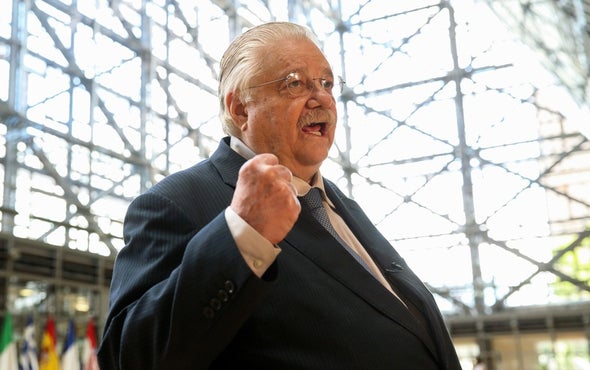Move over Samosa: Nicaragua's Green politics give even Scientific American the glums:
"Along with alleged human rights violations including crackdowns that have killed hundreds of civilian protesters, Nicaragua’s government also stands accused of widespread environmental abuses—such asoverlooking the illicit clearing of rainforests. Critics are now questioning why one of the country’s top government ministers, Paul Oquist, holds a prominent leadership position on the Green Climate Fund (GCF), an international group that sponsors projects to reduce climate change damage in developing countries. Oquist is currently setting agenda priorities for the fund’s governing board meeting in October, when the group plans to sponsor a new round of projects.

Chartered by the United Nations in 2010, the GCF finances climate-friendly development ventures in the world’s poorest countries. Its 24-member governing board, led by two co-chairs, reviews project proposals and allocates a multibillion-dollar budget that is chiefly bankrolled by wealthy nations. During the 2015 Paris climate negotiations, the fund was deemed crucial for helping developing countries meet their emissions goals.
Nicaragua was among the final signatories to the 2015 Paris agreement on climate-control measures. The nation’s leaders had initially slammed the deal as insufficient to protect developing countries from climate change effects. During negotiations, Oquist—Nicaragua’s senior minister for national policy and the country’s climate envoy—called the deal “a path to failure” that would lead to “death and destruction.” But his position flipped after the U.S. pulled out of the pact. (The Trump administration has not fulfilled Washington’s pledge to contribute $3 billion to the GCF).
Nicaragua entered the Paris agreement in October 2017, declaring solidarity with other nations vulnerable to climate change. But some observers claim its government had an additional motive for joining the accord: to gain chairmanship on the GCF’s governing board, a position Nicaragua had long sought. In February the board approved Oquist as co-chair alongside Sweden’s Lennart Båge. The representative from Georgia, Teimuraz Murgulia, protested the decision because of Nicaragua’s initial reluctance to cooperate with the Paris agreement; Murgulia left the room as the board pushed ahead with the appointment. Oquist is now set to lead the board for the rest of 2018.
A number of environmental experts have questioned Oquist’s co-chair position, citing moral objections to Nicaragua’s alleged human rights violations—and an environmental policy that has left the nation’s flora and fauna “severely unprotected,” according to a 2013 study published in the Research Journal of the Costa Rican Distance State University. “We are facing the worst environmental management of our lifetimes,” says Jurguen Guevara, a forestry scientist at Centro Humboldt, ... A forest area totaling twice the size of Delaware has been slashed... in Nicaragua’s Caribbean Lowlands, a remote rainforest area second only to the Amazon in biodiversity and size in the Western Hemisphere, according to Guevara.

